SUMMARY
PREVALENCE: Less common
ACTIVE PERIOD: Nocturnal & diurnal
KEY ID FEATURES: Light to dark brown shell, either solid black or yellow striped face, realtively small
BEHAVIOR: Actively hunt at night but also found during day in and around estuaries, ponds and slow moving low land rivers
SIZE: Large/Medium - 30+cm
IUCN: VU - Vunerable
QUICK ASSESSMENT 0-10
GALLERY
IMPORTANT: Most turtle species in Hong Kong are poached for both the Chinese Medicine and pet trades. You should never reveal location of encountered turtles on social media to reduce the ability of poachers to effectively hunt these extremely vunerable animals.
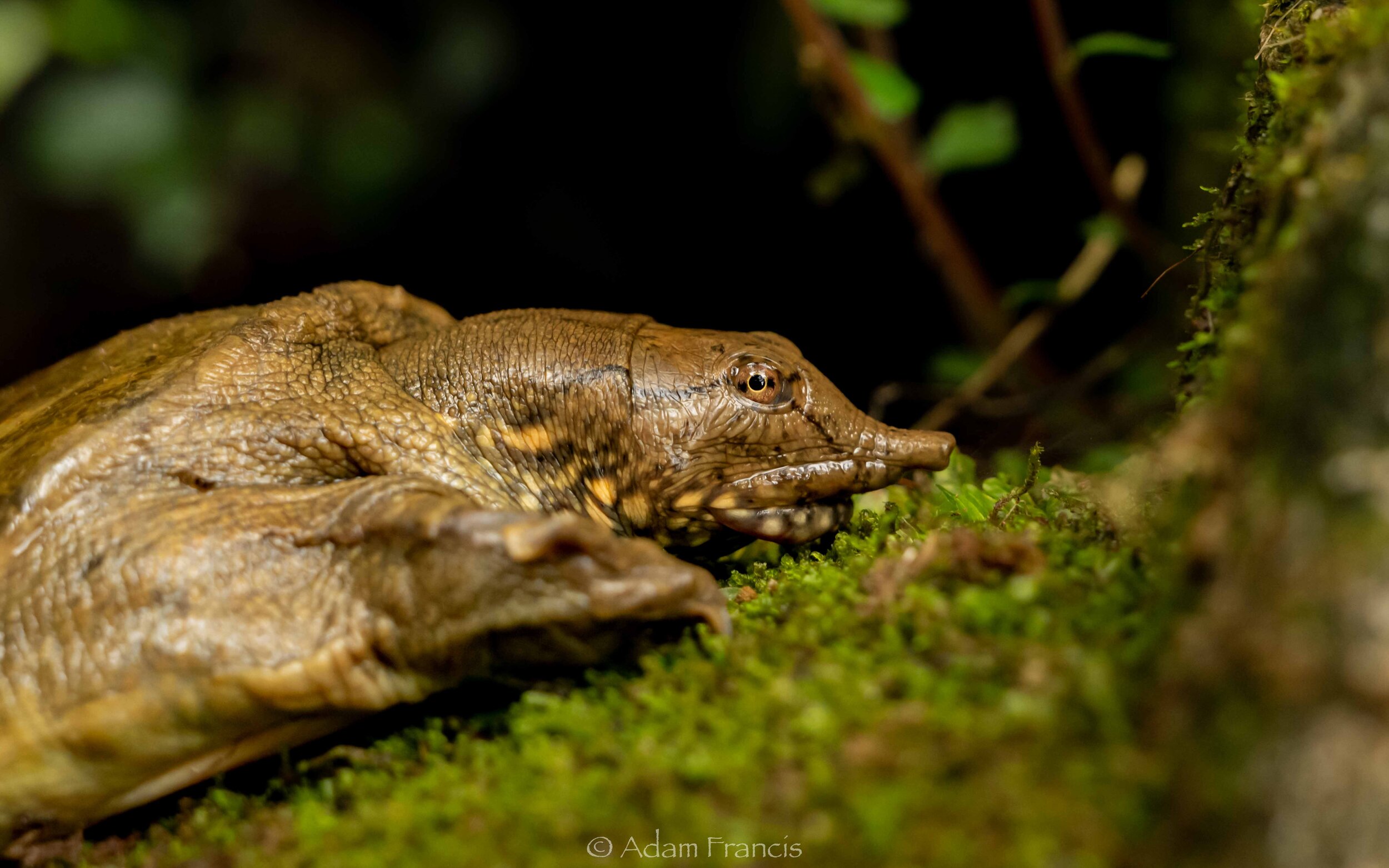
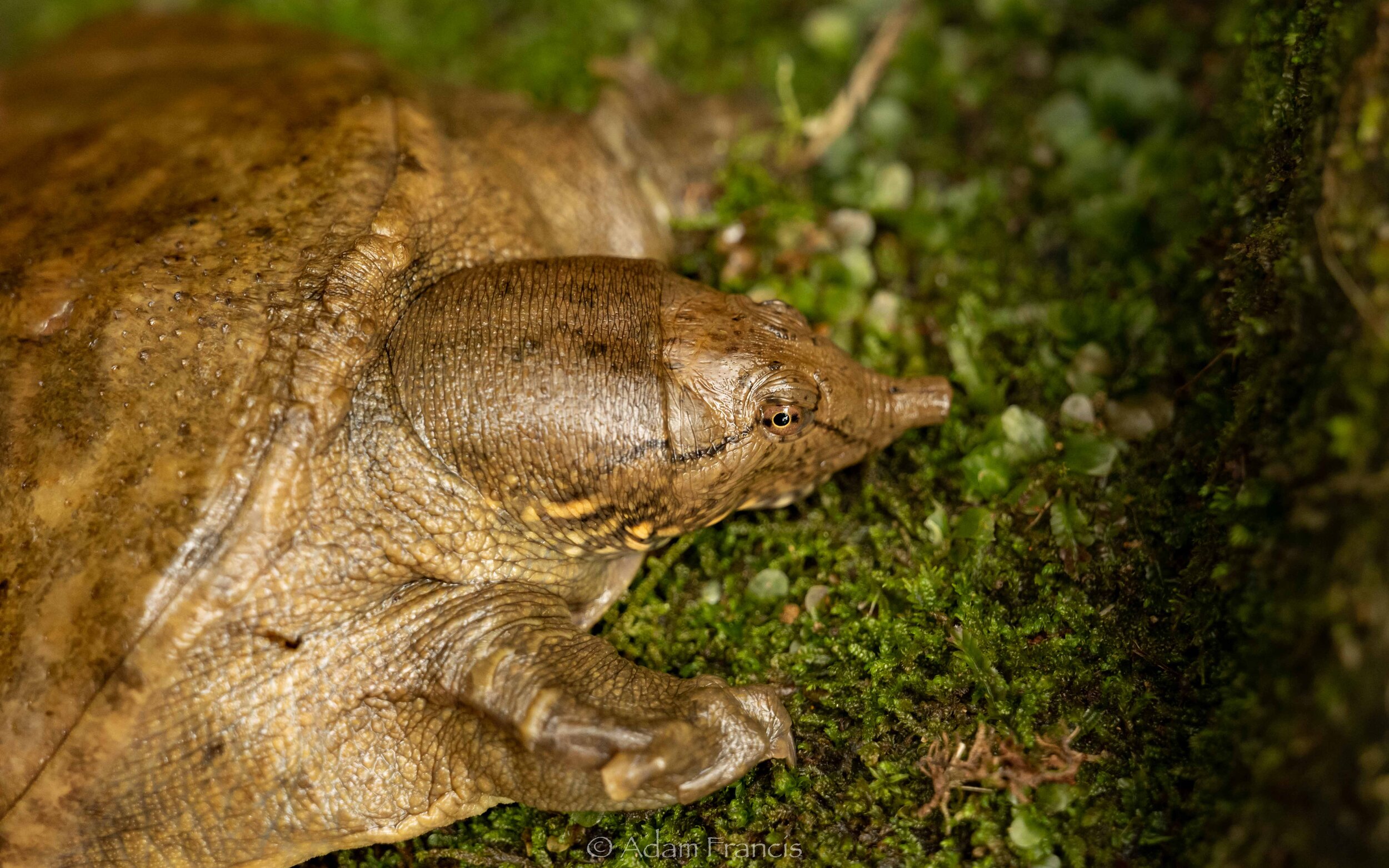
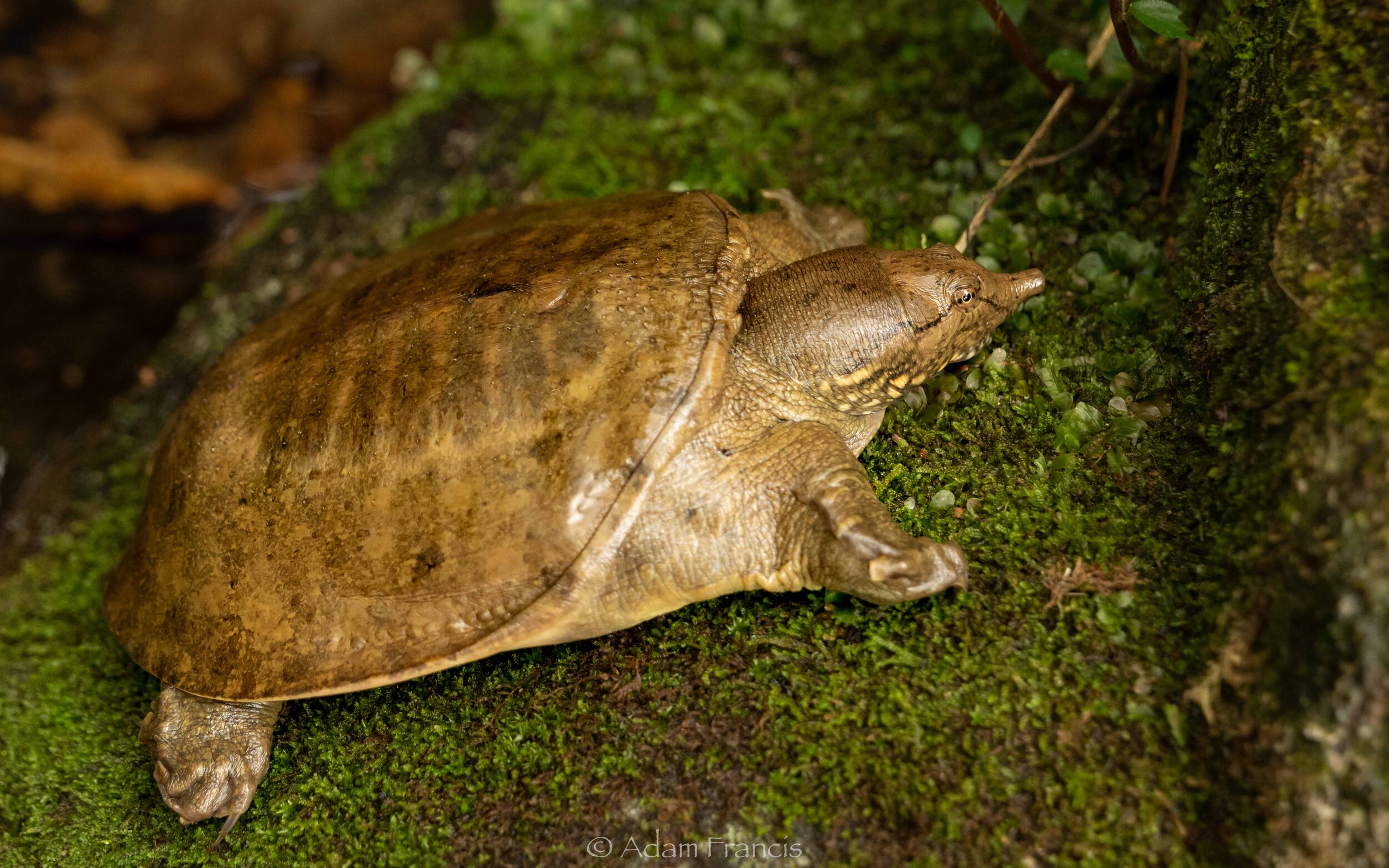
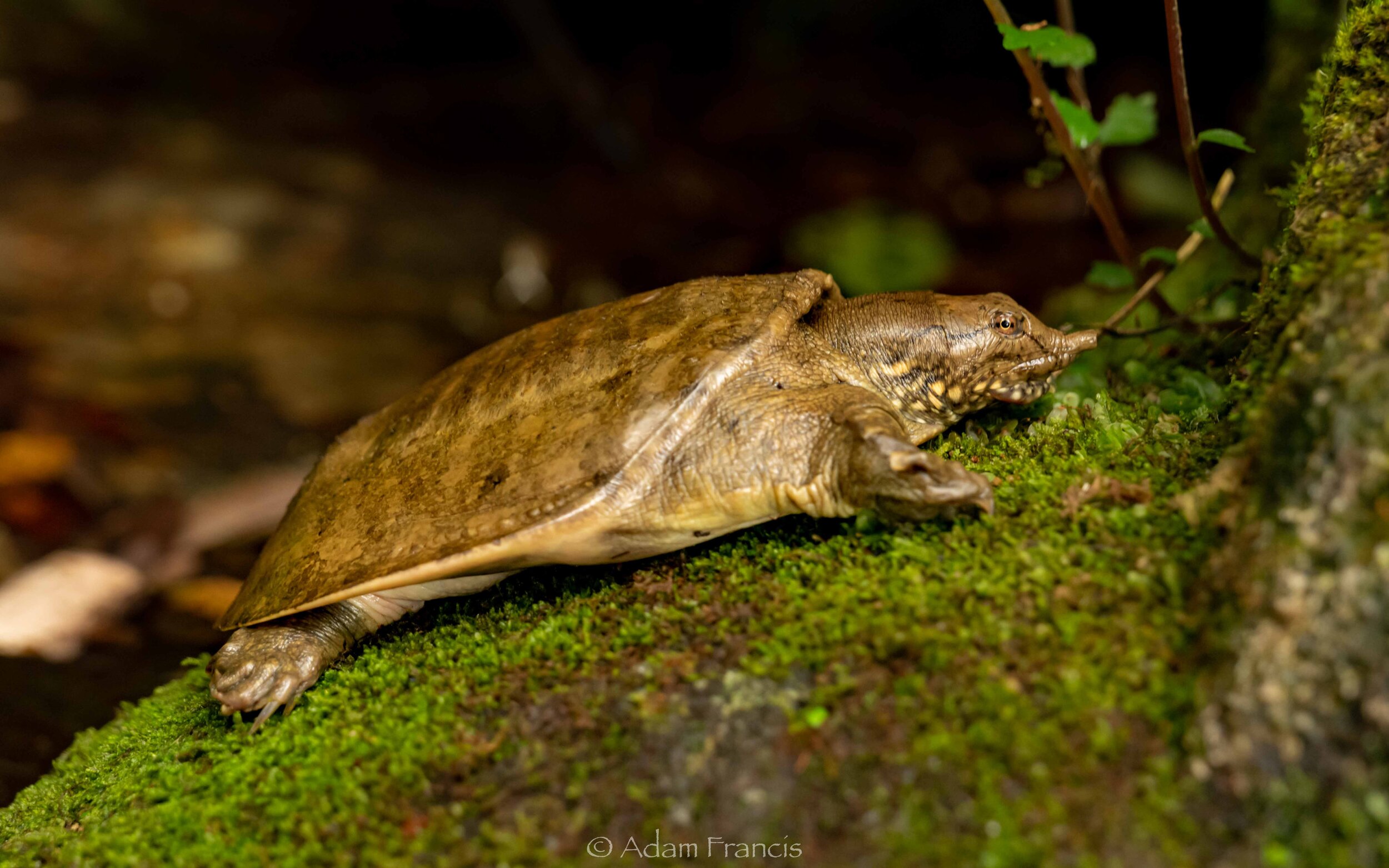
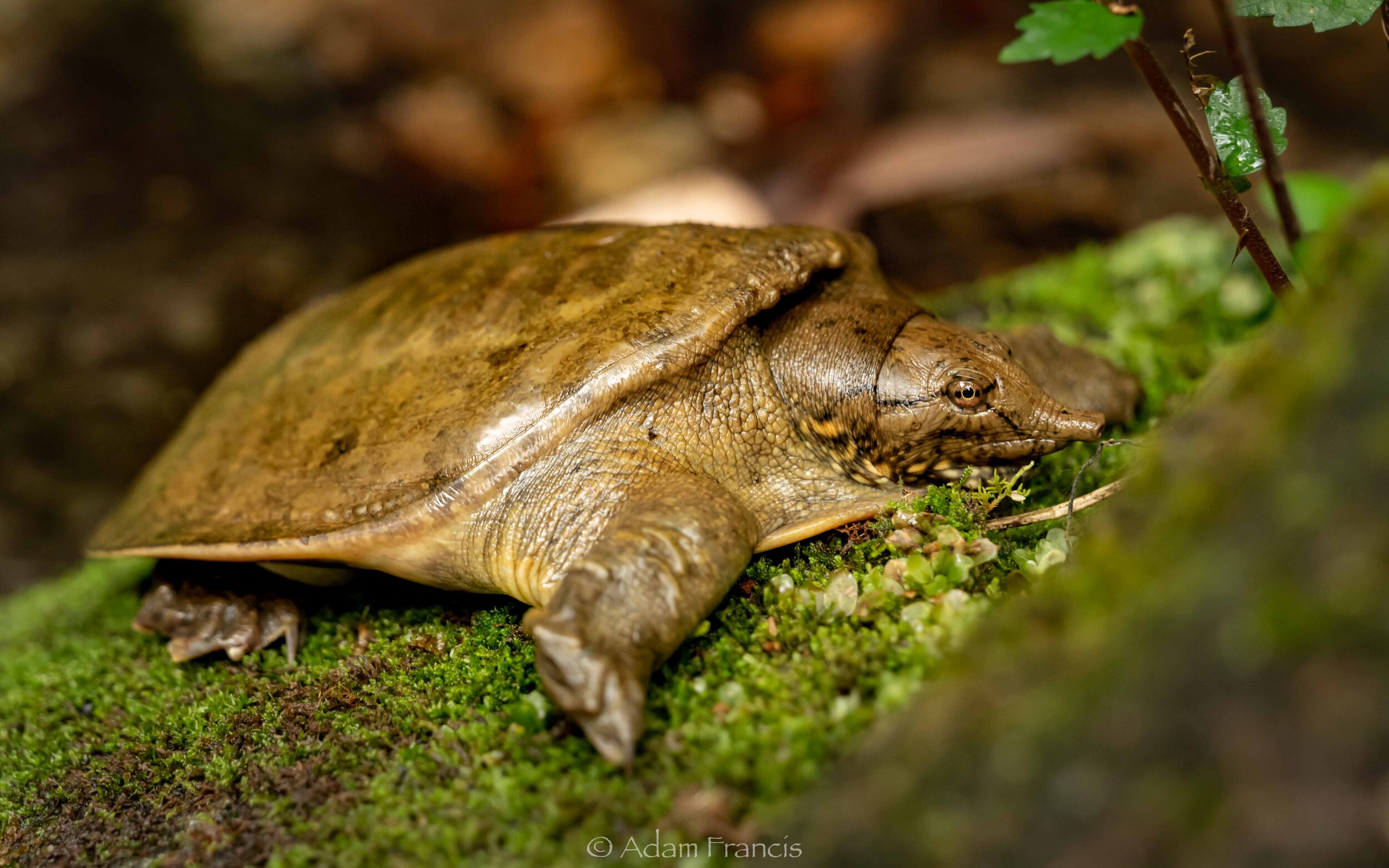
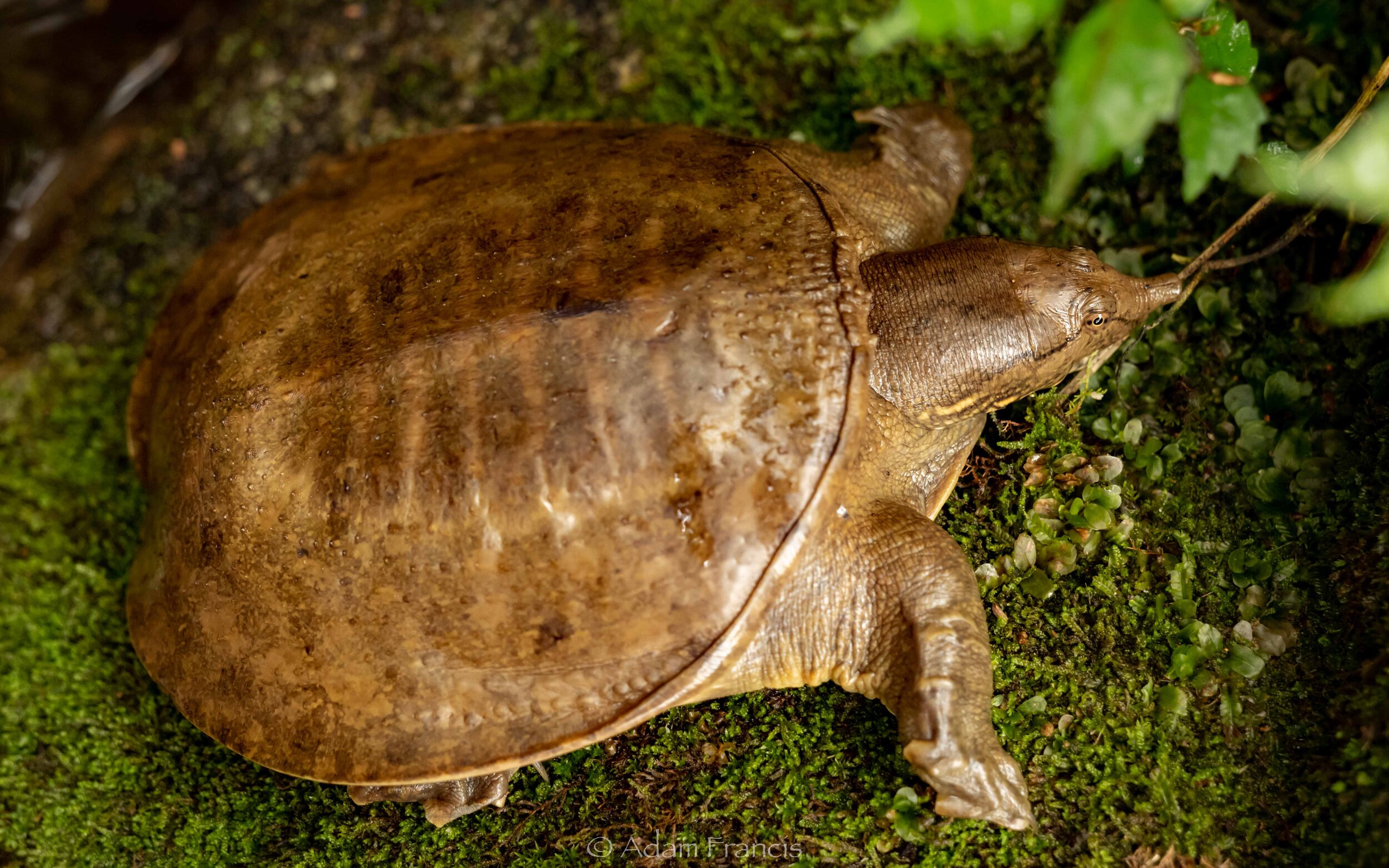
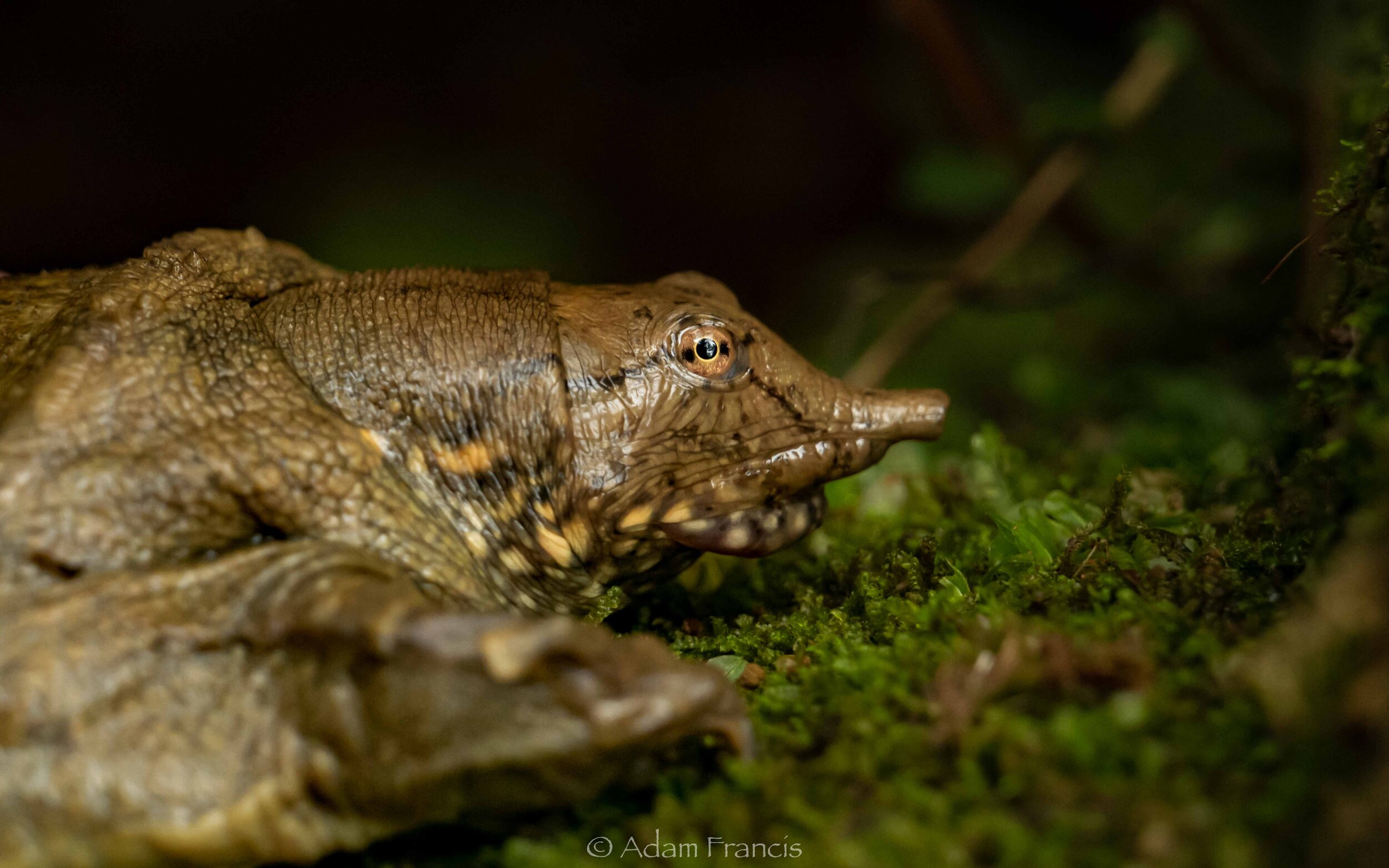
DESCRIPTION
Relatively large when mature compared to other Hong Kong species the Chinese Soft Shell is unique looking species with is large flat leathery shell, long neck and extended nose. Olive green in color with yellow markings on the neck and thin black stripe running from teh upper jaw to the back of the head goign over the eye.
BEHAVIOR
Actively hunting mostly at night in muddy slow moving rivers and ponds. The Chinese Soft Shell Turtle will spend large portions of the day burried in mud occasionally extending its long neck and elongated nose to the surface to breath. Thought to opportunitically consume amphibians and crustations, they largely feed on fish. Very agressive if handled and capable of biting from many angles due to their long necks. Extremely fast on land and in water.
HABITAT
Populations of this species in the wild are more plentiful than some other local speices due to frequent releases of turtles purchased in the pet trade, however they are still listed as endangered. The authors have encountered them in ponds and slow moving rivers. Generally considered a low land speices.
POACHING
TURTLES ARE HEAVILY TRAFFICKED IN HONG KONG: Poachers, unfortunately are still very active in Hong Kong, regularly trapping rare turtle species to sell to the pet and Chinese Medicine trade. Turtles that end up sold into this trade are killed to become ingredients in traditional medicines. To avoid unintentionally aiding poachers, locations of turtles found in Hong Kong should never be shared on social media, and individuals should never be collected as pets given the potential for disruption to local breeding populations.

